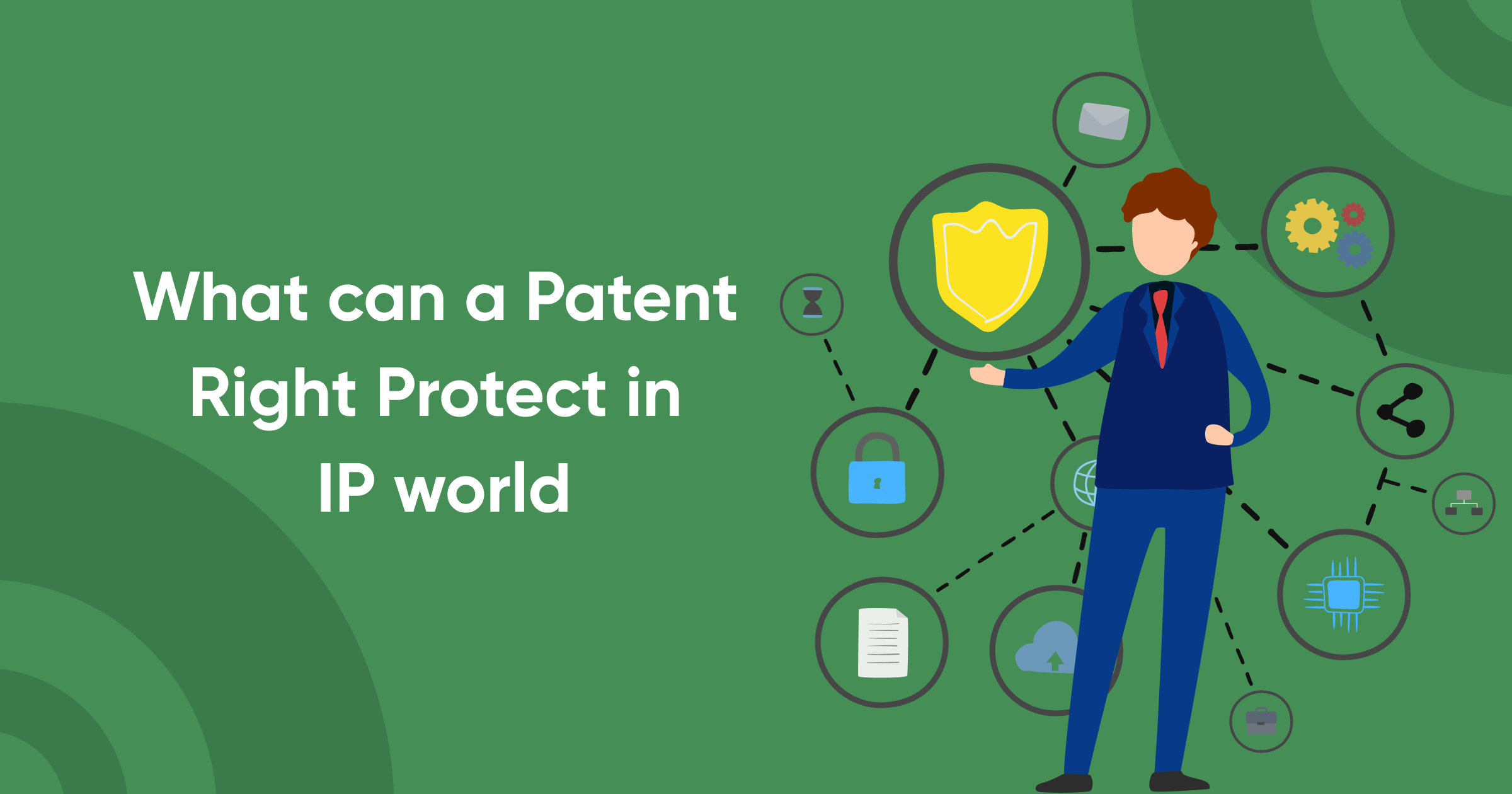In the realm of intellectual property (IP), patents play a pivotal role in safeguarding innovations. A patent grants exclusive rights to an inventor, preventing others from making, using, selling, or distributing the patented invention without authorization. This legal protection fosters creativity and encourages inventors to bring groundbreaking ideas to life. In this blog, we’ll delve into what a patent can protect and why it’s essential for innovators, with insights specifically tailored for the Indian audience.
Understanding Patents
A patent is a form of intellectual property that protects inventions, whether they are products, processes, or solutions to a technical problem. In India, the Patents Act, 1970 governs patent rights, which are valid for 20 years from the date of application. To qualify for a patent, an invention must meet three key criteria:
- Novelty: The invention must be new and not part of existing knowledge or prior art.
- Inventiveness: It should involve an inventive step that is not obvious to someone skilled in the field.
- Industrial Applicability: The invention must be capable of being made or used in an industry.
What Can a Patent Protect?
1. Innovative Products
Patents protect unique products that offer new solutions or enhance existing technologies. Examples include:
- Medical devices
- Consumer electronics
- Machinery and tools
For instance, if you develop a new type of smartphone with unique features, patenting it ensures no competitor can replicate your innovation without consent.
2. Processes and Methods
Patents can also safeguard new methods or processes of manufacturing. Examples include:
- A novel method for producing biodegradable plastics
- An innovative process for water purification
Such patents are crucial for industries aiming to improve efficiency and sustainability.
3. Chemical Formulations
Pharmaceutical companies heavily rely on patents to protect their drug formulations. This includes:
- New medicines
- Cosmetic compositions
- Agrochemical products
Patents in this category ensure that innovators recoup their investments in research and development.
4. Software and Algorithms
In India, software patents are granted if the software is part of a larger invention or solves a technical problem. Examples include:
- Software embedded in medical devices
- AI algorithms integrated into industrial machinery
5. Mechanical Devices
Any unique mechanical device, from industrial equipment to household gadgets, can be patented. This protection ensures manufacturers can exclusively produce and market their innovations.
6. Biotechnological Inventions
Inventions in the field of biotechnology, such as genetically modified organisms or diagnostic methods, are patentable. For example:
- DNA sequences
- Vaccines
- Bioengineered crops
Why Are Patent Rights Important?
1. Encourage Innovation
Patents provide inventors with the confidence to invest time and resources into research, knowing their work is legally protected.
2. Exclusive Commercial Rights
With a patent, the inventor has the exclusive right to monetize their innovation, whether through manufacturing, licensing, or selling.
3. Prevent Unauthorized Use
Patent rights deter competitors from exploiting an invention without permission, protecting the inventor’s interests.
4. Attract Investments
Patents demonstrate the uniqueness and potential of an invention, making it easier to secure funding or partnerships.
The Process of Patent Registration in India
Step 1: Conduct a Patent Search
Before filing, ensure your invention is unique by conducting a thorough patent search. This reduces the chances of rejection.
Step 2: Draft a Patent Application
Prepare a detailed patent specification, including a description, claims, drawings, and an abstract. Precision is key to avoiding legal disputes.
Step 3: File the Application
Submit your application to the Indian Patent Office. You can file a provisional or complete application, depending on the stage of your invention.
Step 4: Publication and Examination
The application is published in the Patent Journal 18 months after filing. Request an examination to initiate the review process.
Step 5: Respond to Objections
If the examiner raises objections, address them promptly to move forward in the process.
Step 6: Grant of Patent
Upon successful examination, the patent is granted, providing the inventor with exclusive rights.
How Trademarkia Can Help
While the patenting process can be complex, Trademarkia offers expert assistance to simplify the journey. From conducting patent searches to drafting applications and responding to objections, their team ensures a hassle-free experience for inventors.
Conclusion
Patents are a cornerstone of intellectual property, offering robust protection for innovations across various fields. Whether it’s a groundbreaking product, a unique process, or a biotech marvel, patent rights empower inventors to capitalize on their creativity while safeguarding their interests.
For professional assistance with patent registration, Trademarkia provides a streamlined and efficient process just to address your queries and needs.
Frequently Asked Questions
-
Can I patent an idea? No, patents are granted for tangible inventions, not abstract ideas. Your idea must be developed into a product or process to qualify.
-
How long does it take to get a patent in India? The process typically takes 2-3 years, depending on the complexity of the invention and the speed of the examination.
-
Are patents valid internationally? Patents are territorial. However, you can file for international protection through mechanisms like the Patent Cooperation Treaty (PCT).







